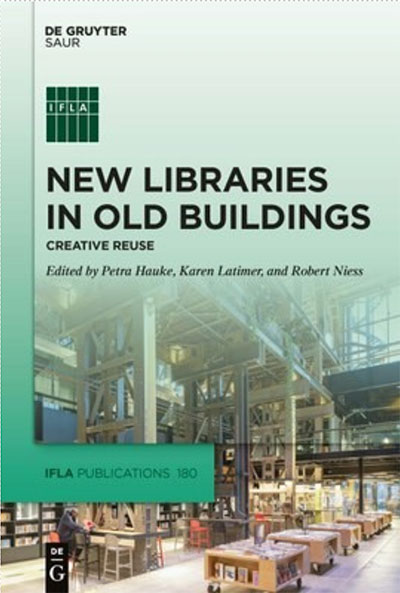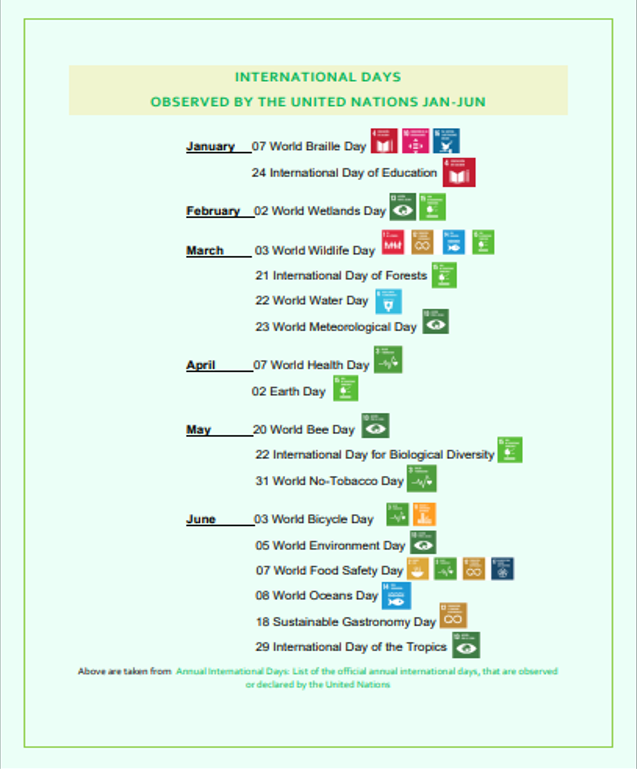ENSULIB Newsletter (Dec 2021)

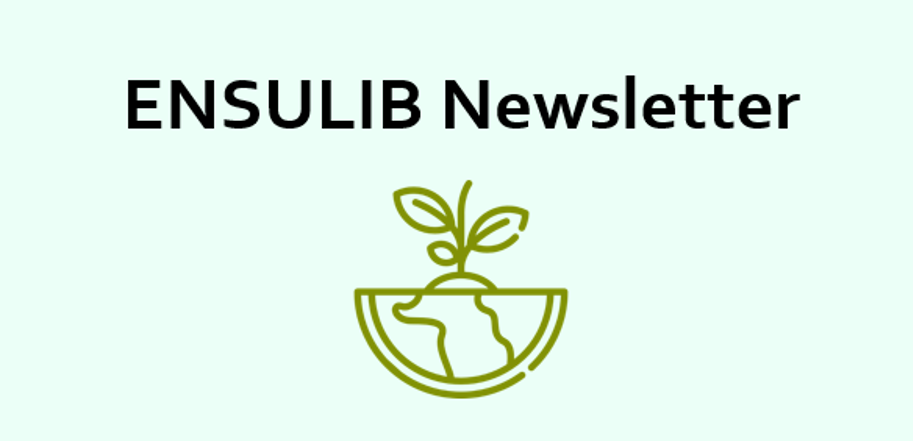
Volume 1, Issue 1, December 2021
Message from the Chair

It is a great joy for me that the very first ENSULIB Newsletter is now out. My wish is that readers will find it interesting and useful.
In my view, the newsletter is necessary and maybe also expected. Climate change and other environmental issues are continuously in focus and for good reason. It has become essential that states, cities, local communities, organizations, and citizens all prioritise the environment and sustainability since there is only one planet Earth and no plan B. For the same reasons, library world has realized that – although libraries do not have high carbon footprint nor use nonrenewable raw materials – it should participate in environmental work and become proactive in it. This has been Environmental Sustainability and Libraries (ENSULIB) special interest group’s (SIG) mission from the very beginning.
Biography of the Chair
Harri Sahavirta, Ph.D., Chief librarian, ENSULIB Chair 2021-2023
Harri Sahavirta studied philosophy at the University of Helsinki in Finland and his Ph.D. concerned philosophy of science. During his studies, he begun to work at Helsinki City Library and he is currently the chief librarian in Arabianranta and Vallila libraries in Helsinki. In addition, environmental sustainability is part of his range of responsibilities at Helsinki City Library.
Harri has participated national projects, like Sustainability@libraries (2012), and served as project manager in many national projects, like Changing soundscapes of public libraries (2017) and Public libraries as promotors for adult reading (2017-2018). His last (and ongoing) project is Environmental sustainability into the 2020s in public libraries (2020-2021).
He has been an active member of Environmental Sustainability and Libraries IFLA Special Interest Group (ENSULIB) since 2011 and served as the convenor of the group 2015-2019 and secretary in 2020. At present, he is the chair of the ENSULIB section and will serve from 2021-2023. In addition to these responsibilities, Harri has written many articles on environmental sustainability and coordinates the IFLA Green Library Award with Petra Hauke.
E-mail: harri.sahavirta@hel.fi
About the Editorial Committee
The ENSULIB Newsletter is published twice a year (June and December). Please contact our editors for contributions.

Head of Technical Process Unit, University of Macau Library, Macao, China;
Information Coordinator, IFLA ENSULIB Section
Email:
nipun@um.edu.mo

Chief Specialist / Editor-in-Chief, National Library of Latvia, Latvia; Standing Committee member, IFLA ENSULIB Section
Email:
kristine.deksne@lnb.lv
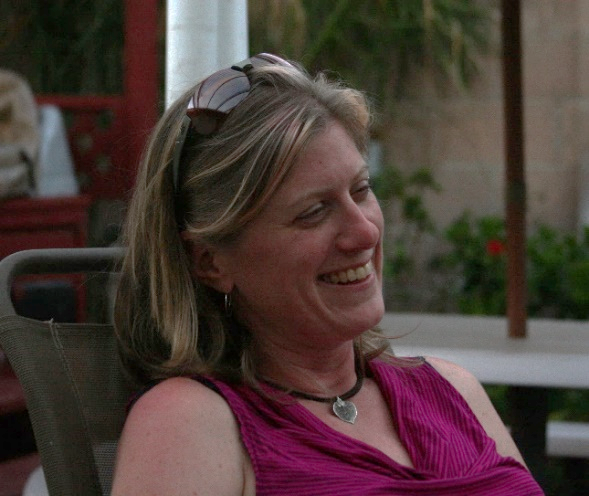
Head of Library Experience and Access Department, Oregon State University Libraries, USA; Standing Committee member, IFLA ENSULIB Section

Director of Central Services, University Library, University of Sydney, Australia; Standing Committee member, IFLA ENSULIB Section
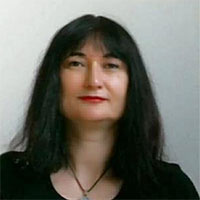
Research Support Librarian, Polytechnic University of Turin, Italy; Standing Committee member, IFLA ENSULIB Section
Email:
rossana.morriello@aib.it
The Great Sustainable Shifts: The Story of ENSULIB
Harri Sahavirta
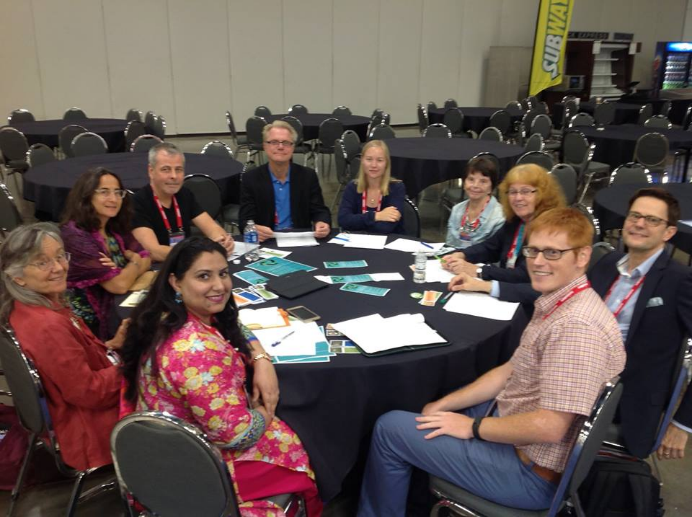
ENSULIB has existed little over ten years and the narrative of the group reflects broader shifts in the environmental discussion in libraries. 2010 marked the start of the decade when awareness of environmental sustainability really broke through – from the Paris climate agreement in 2015 to UN Sustainable Development Goals, and the Climate Change Conference (COP26) in Glasgow in 2021. At the same time libraries realized that environmental and social sustainability could and should be at the core of librarianship.
ENSULIB’s Definition: What is a Green Library?
Environment means the surroundings or conditions in which human beings, organizations animals, or plants live and operate. Environments can be natural, social, or cultural.
Sustainable development is development that “meets the needs of the present without compromising the ability of future generations to meet their own needs” (Our Common Future, Brundtland Report, UN).
Present environments are endangered by climate change and other threats including social inequalities. All organizations should strive to protect the environment through sustainable development. This includes all kinds of libraries, which can play an active and significant role in sustainable development.
A green and sustainable library is a library which takes into account environmental, economic and social sustainability. Green and sustainable libraries may be of any size, but they should have a clear sustainability agenda that includes:
Introducing ENSULIB Standing Committee Members
There are 20 Standing Committee members in IFLA’s ENSULIB Section. In this issue, we introduce 8 of them. Names are listed in no particular order.
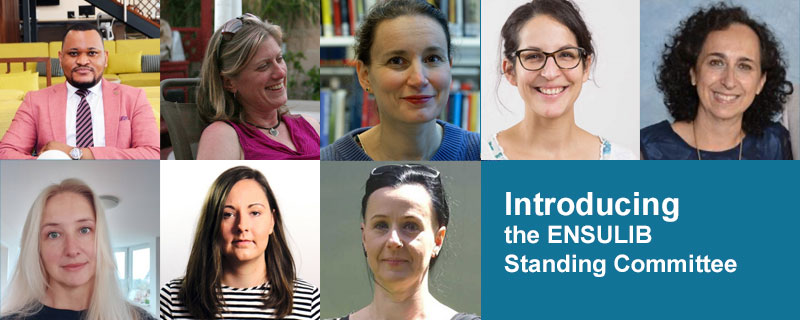
Dr. Petra Hauke, Secretary of ENSULIB Awarded the IFLA Scroll of Appreciation
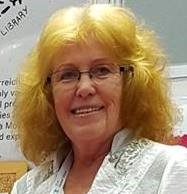
Petra’s career spans more than 35 years of expertise in both public and academic libraries. She has taught on a wide range of library-related subjects at Humboldt-Universität zu Berlin, Germany, and at a host of other universities in Germany and abroad. She has edited and authored numerous library science related publications like “The Green Library” (2013). She has presented many papers internationally at IFLA and other international and national conferences. She joined IFLA as an Education and Training Section Standing Committee Member (2005–2013), serving as newsletter editor, later as secretary, followed by the Library Theory and Research Section Standing Committee 2013–2017.
The IFLA Green Library Award, 2021
Priscilla Pun
The ENSULIB Open Session titled Green Libraries and Sustainable Practices for the Long-Term Future was successfully held at the virtual IFLA World Library and Information Congress (WLIC) 2021 on 19 August this year. During this international annual event, the winner and runners-up of the Award 2020 presented their submissions, and the winners of the IFLA Green Library Award 2021 were announced.
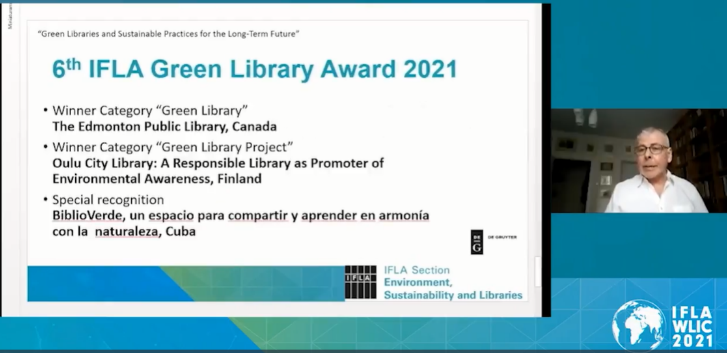
Conference Reports
Library, the Heart of the City: the Green Library
Ana Zdravje
On Thursday, 20 May 2021, Ljubljana City Library hosted the sixth international one-day professional conference Library, the Heart of the City 2021, dedicated to green libraries.
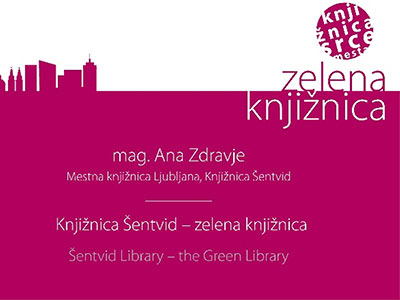
One of the branches of Ljubljana City Library is Šentvid Library, which has been renovated in 2014. It is located in a border area of the city, almost half of which is covered in green, forest surfaces. The main motto of the renovated library is: We live in harmony with nature. Through it we charted the concept of the green library.
In 2019, Šentvid Library participated in the IFLA Green Library Award competition, awarded by the umbrella international library organization IFLA, and achieved very high placement with the presentation of its realization of the concept of a green library.
We wanted to give green library a new impetus and organized an international conference which would connect expert lectures on the subject in the whole of Slovenia but also in the wider region. Therefore we dedicated our traditional biennial professional conference – the theme of which is always different – to green libraries. The conference should have taken place in 2020, but was for obvious reasons implemented this year in a virtual environment.
Book Reviews
New Libraries in Old Buildings – Creative Reuse
Casey Conlin
Edited by: Petra Hauke, Karen Latimer and Robert Niess
Berlin/Boston: De Gruyter Saur, 2021
ISBN 9783110679663
(IFLA Publications; No 180)
With programs and spaces that build local resiliency through connections between neighbors, and borrowing services that facilitate communities sharing finite resources to create social equity while limiting resource consumption and financial costs, libraries are a key part of a sustainable future on our planet.
The value of the library to the people it serves justifies the economic and ecological costs of creating and updating library spaces, but in IFLA’s latest publication, New Libraries in Old Buildings: Creative Reuse, editors Petra Hauke, Karen Latimer, and Robert Niess gather nineteen case studies from public and academic library buildings all over the world to challenge the idea that great library spaces can’t be created in existing buildings, and demonstrate that adaptation of old buildings can provide benefits which can’t be realized in new construction. New Libraries in Old Buildings, available now through open access, should be on the reading list for any library administrators and stakeholders looking to update their library space, architects that specialize in library construction, and anyone interested in creating more sustainable libraries.
Il Paradigma della Biblioteca Sostenibile
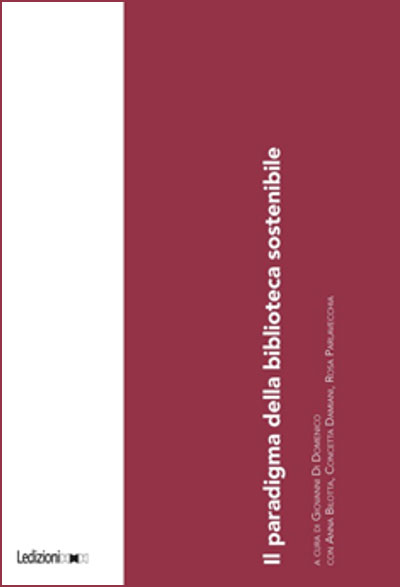
Rossana Morriello
A cura di Giovanni Di Domenico, con Anna Bilotta, Concetta Damiani, Rosa Parlavecchia.
Milano : Ledizioni, 2021
ISBN 9788855265768
The book, published in October 2021, was edited by Giovanni Di Domenico, professor of Library science at the University of Salerno, together with some collaborators. It is a collection of essays mainly in Italian, except for one written in Spanish by Margarita Pérez Pulido, professor at the University of Extremadura, which cover many of the aspects related to the paradigm of the sustainable library, referred to in the title of the book. The work starts with some introductive chapters presenting a review of the state of the art and recalling the professional and scientific literature in Italy. Then a chapter by Chiara Faggiolani comments on the results of an extremely interesting survey on library users conducted recently in Italy by a network of public libraries, in collaboration with the Italian Library Association and Sapienza University of Rome.
A Guide to Support Libraries’ Commitment to Sustainable Development and Social Responsibility
Thomas Chaimbault-Petitjean
The French National Library and Information Sciences School (ENSSIB) has designed a thematic guide based on the 17 Sustainable Development Goals (SDGs) of Agenda 2030. This regularly updated open access resource is a valuable tool to support professionals engaged in developing a sustainable development strategy for their library. Reference documents, academic articles and works, documentary files and a selection of books can be consulted in relation to the SDGs. A professional news feed keeps a watch on events linking Sustainable development, societal responsibility issues and libraries and reports on study days and publications produced by libraries.
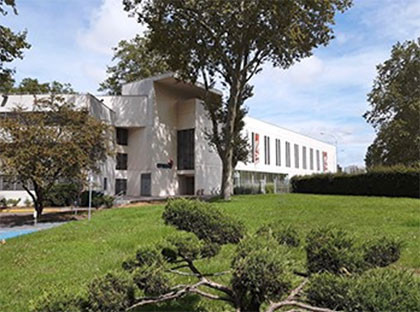
Green and Sustainable Library Projects
Australia
The Australian Library and Information Association: Greening Libraries in Australia
Antonia Mocatta
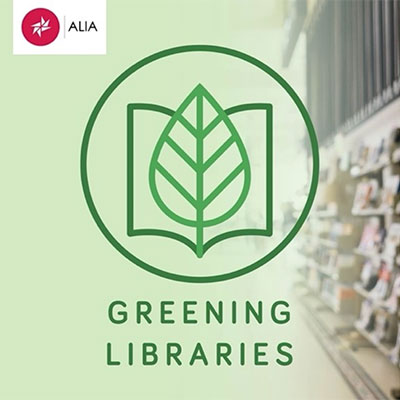
The Australian Library and Information Association (ALIA) is the national professional organisation for the Australian library and information services sector. It has recently launched its Greening Libraries initiative, to provide leadership for the sector and information professionals to work towards a sustainable future.
As a peak body for the Australian library and information sector, CEO, Sue McKerracher sees ALIA playing a stewardship role in library sustainability and working collaboratively with the sector to support environmentally sustainable outcomes. The ALIA Sustainable Libraries Group already exists to educate colleagues and provide support on issues of environmental, social and financial sustainability. While ALIA supports the UN Sustainable Development Goals as a whole, its SDG targets include developing guidelines for Australian libraries’ environmental sustainability, and ALIA plans to realise this through its Greening Libraries initiative.
China, Macao
Learning is an Open Door: Sustaining Higher Education in the COVID-19 Pandemic
Anna Au
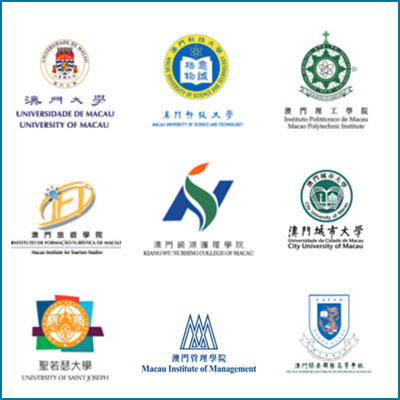
In response to the COVID-19 pandemic, the university libraries in Macao have been working together to provide online digital services to keep the virtual door open when the physical one is closed. By the end of March, MALA, formed by nine university libraries and supported by Education and Youth Development Bureau of Macao SAR Government, already have had over 10 virtual meetings to discuss coordination and solutions for electronic resources, inter-library loans, patron services, and teaching and research challenges. The following highlights some of the best practices.
MALA integrated the 9 libraries’ databases, which were then promptly presented on MALA’s platform. The subjects cover science and technology, economics, pedagogy, humanities, and social science. An addition of high-quality subscriptions, self-created academic resources, and external resources was also push forward for teaching and research.
Indonesia
“E-JARIG” Innovation of Online Search Demand Services: Collection of Rare Newspapers Collected by the National Library of the Republic of Indonesia in the Pandemic Era
Atikah Haroen

The impact of the pandemic has forced libraries to start shifting from physical to digital services in whole or in part. This makes the role of librarians more challenging and also offers a number of new opportunities. The role of the librarian becomes more important by carrying out various innovations and creativity in providing services. Some things that can be done to support the community remotely include communicating with clients through social media via telephone, WhatsApp, and email to keep in touch and to share knowledge with the public.
Italy
Italian Library Association, Bibliopride, Agenda 2030 and IFLA Stories: the Lazio Region Experience
Maddalena Battaggia
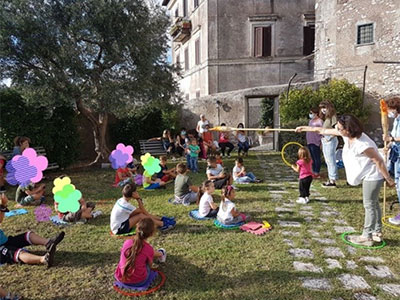
In September 2021, the Italian Library Association (Associazione italiana biblioteche, AIB) organized the 10th edition of “Bibliopride – The National Week of Libraries”, an event during which libraries are encouraged to promote initiatives revolving around a specific topic. The topic for this year’s edition was Libraries for Agenda 2030.
Wondering about what to propose to the libraries of its region, the Lazio branch of the AIB was inspired by a beautiful project of the IFLA called SDG Stories. This initiative aims at sharing experiences at an international level on the role that libraries can play in pursuing the Sustainable Development Goals. Italy is not yet represented by any story within the IFLA Library Map of the World and so we thought: why not start from the SDG Stories of Lazio?
Finland
A Responsible Library as Promoter of Environmental Awareness
Minna Männikkö
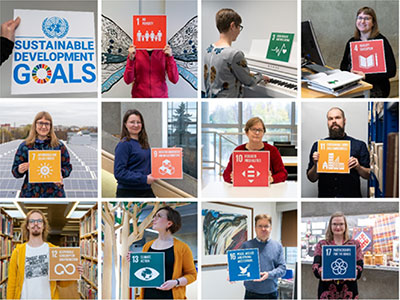
During 2019-2020, the Oulu City Library implemented A Responsible Library as Promoter of Environmental Awareness project. The objectives of the project were promoting environmental awareness among customers and library staff, reducing the environmental impact of library operations, and drawing up an action plan for sustainable development.
Creating new ways of thinking and acting
During the project, environmental communication to both customers and staff was significantly increased. All available channels and means were used for communication, from social media updates and newsletters to training, events, environmental book exhibitions and reading tips. A new green visual look, the Sustainable Library concept, was also designed to support environmental communication.
France
La Médiathèque de la Canopée : A Green Library in Progress
Sophie Bobet
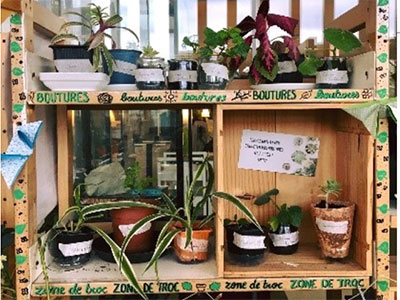
Three years ago, the Canopée-la fontaine library in Paris decided to commit to an active ecological approach. In 2019, the library was chosen to pilot a circular economy project with a view to reducing its environmental impact, starting with a change to the library’s internal professional practices, in addition to building a coherent offering of services to the public.
In 2018 the library had already developed a collection of documents specializing in Ecology, alongside different services such as a seed library, the “grainothèque”, to enable the exchange of seeds amongst our patrons, and a “bouturothèque” for the barter of cuttings, etc. As part of the library’s 2030 Agenda framework, workshops around recycling, as well as lectures, debates and urban walks are on offer to enable library users to understand the challenges of sustainable development.
Germany
Green FUBib: Sustainability at the University Library
Janet Wagner
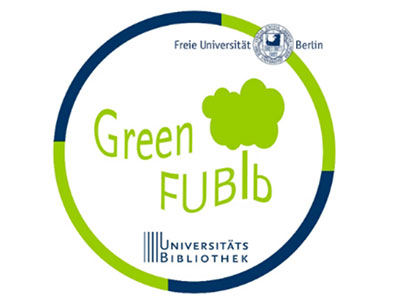
The GreenFUBib group is committed to sustainable action in everyday library life at Freie Universität. What have we already changed, and what do we still plan to do?
“The idea of sustainability is neither a brainchild of modern technocrats nor a brainwave of eco-freaks of the Woodstock generation. It is our most original world cultural heritage” (Grober, 2010, p.13).
Everywhere on this planet – no longer somewhere far away, but also on our own doorstep – severe changes are taking place in nature and the climate. The environmental guidelines of Freie Universität Berlin, have included responsible action and personal responsibility of all people in research, teaching, studies and at the workplace both as a commitment and an appeal for many years. The university library with its 13 locations, has also specified in its strategy document that sustainability and responsibility should guide cooperation as one of seven values.
Latvia
Awareness-raising and capacity building of librarians in Latvia on SDGs
Māra Jēkabsone & Kristīne Deksne
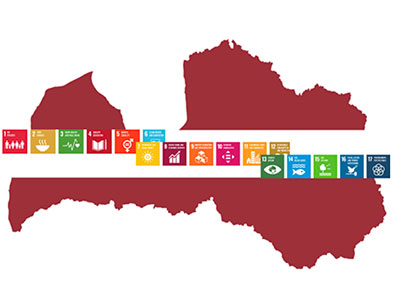
The Latvian library community has been talking more about SDGs since 2017, when the first two lectures-workshops on the topic were held for library directors and other leading field specialists. To encourage librarians to look more in-depth at the SDGs and help libraries to see their role in the sustainable development of their communities, the Latvian Library Report prepared by the Library Development Center of the National Library of Latvia includes a section on SDGs, that summarises and analyses the experiences of Latvian libraries in the area of SDG implementation.
In 2019, the National Library of Latvia, the Latvian National Commission for UNESCO and the Library Association of Latvia launched a seminar series “Libraries and Sustainable Development: we build this world ourselves”, which aimed to highlight the role and involvement of libraries in achieving SDGs, discuss the opportunities for libraries to improve the lives of their communities, and share stories of activities that have already been implemented.
Slovenia
Franc Ksaver Meško Ormož Library: Uniting Local Community on Its Road to Sustainability
Marinka Vnuk
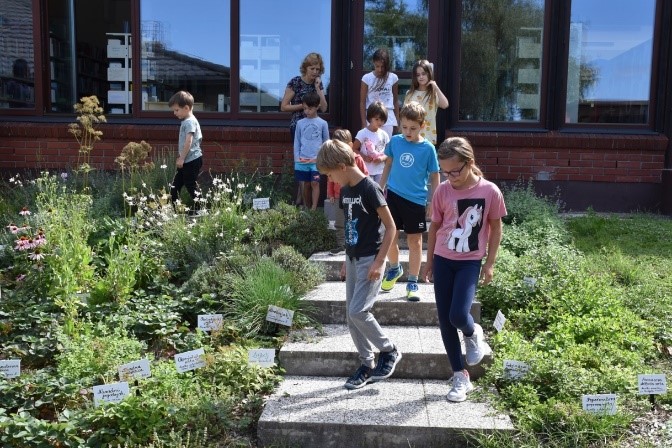
Franc Ksaver Meško Ormož Library is one of the four best green libraries in the world in according to IFLA Green Library Award 2021. It is one of only two Slovenian green libraries that actively chose to embark on the road to sustainability in 2015 after moving to renovated energy-efficient premises with extensive green areas, and starting to build new partnerships in the local community.
Each year, a certified herbalist prepares a variety of herbal tea blends from herbs, picked and dried by the library staff.
The vine trellis on the library’s patio offers pleasant shade for outdoor reading and the local winemaker produces grape juice from the picked grapes, which is served at library events. Occasionally, grapes are used to make jam.
Spain
Climate change in the spotlight of RECIDA, the Spanish Network of Green Libraries
Rosario Toril Moreno
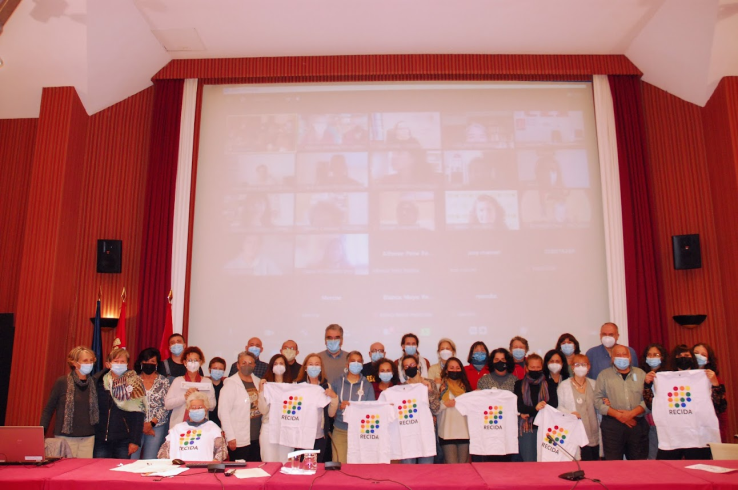
The twentieth Seminar of Environmental Documentation Centers and Protected Natural Areas was held from 20 to 22 October 2021. This year it has been coordinated by the National Center for Environmental Education (CENEAM) of the Ministry for the Ecological Transition and the Demographic Challenge (Spain) and the Center for Documentation and Resources for Environmental Education of Cantabria (CIMA).
After the COVID19 pandemic, we resumed our in-person annual meeting in Valsaín, Segovia (Spain). This year, it has also been possible to attend the meeting online, since, for the first time, it has been held in a hybrid way. Ninety participants were registered, including heads of centers, experts and professors from universities in the seventeen regions of Spain and from thirteen national parks, in addition to other natural areas.
United States of America
Florida Environment & Natural History Portal
Sydney Jordan
As climate change, pollution, and the loss of wildlife and habitats due to human development have become some of the most decisive and pressing issues on the planet, environmental concerns increasingly define our present era and have deeply influenced both public and academic landscapes. Situated with three campuses along Florida’s gulf coast, the University of South Florida (USF) has a unique vantage point on and interest in issues related to the local environment and sustainability.
In support of research on these topics and the university’s core commitments, USF Libraries formally launched the Florida Environment and Natural History (FLENH) collections initiative in 2020. This endeavor positions USF as a leader among U.S. academic institutions collecting in environmental and natural history by establishing a central repository for historic and contemporary scientific data and providing sustainable institutional support for the ingest, creation, and distribution of archival and secondary research resources centered on the impacts to, and effects on, Florida’s natural environment.
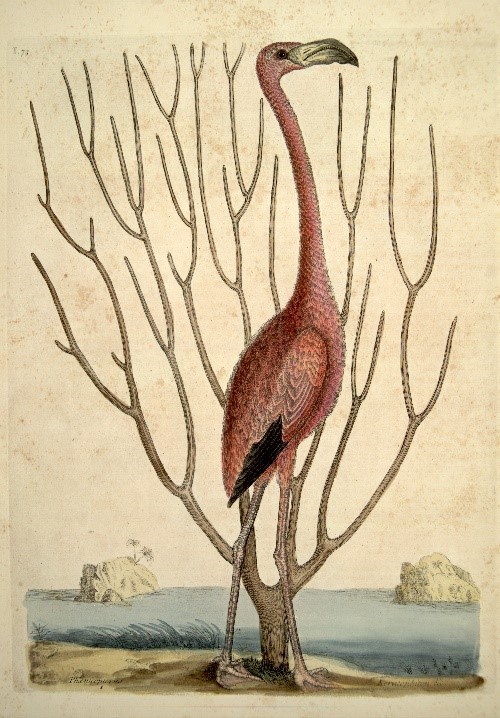
2022 International Year of Basic Sciences for Sustainable Development
Rossana Morriello
In late 2019, the UNESCO General Conference adopted a resolution to proclaim 2022 as the International Year of Basic Sciences for Sustainable Development (IYBSSD). The action was proposed by several world scientific institutions, which realize the importance of basic research, also called “curiosity driven”, and the need to emphasize its role, which is generally underestimated. Most governments are mainly committed to financing applied science rather than basic science.
The Covid pandemic has shown to the world the relevance of basic science.

